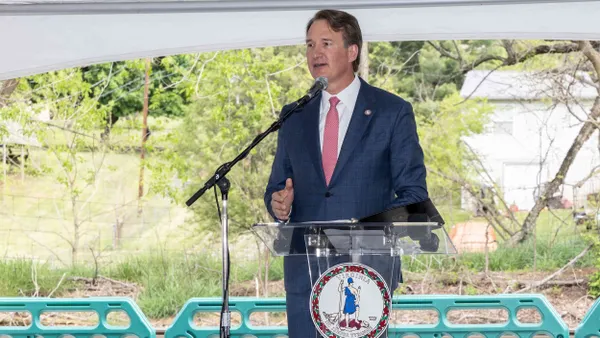UPDATE: A legal dispute between Uber and Waymo, which was dubbed one of the "biggest legal battles in years" for Silicon Valley, ended when the companies reached a settlement after only four days, according to the Pittsburgh Business Times and others.
Under the agreement, Waymo will get a 0.34% stake in Uber, equivalent to approximately $245 million of Uber's estimated $72 billion valuation, according to CNET. It was originally reported that Waymo was seeking approximately $2 billion in the suit.
In a blog post, Uber CEO Dara Khosrowshahi made amends with Alphabet, stating, "[W]e are partners, you are an important investor in Uber, and we share a deep belief in the power of technology to change people’s lives for the better. Of course, we are also competitors. And while we won’t agree on everything going forward, we agree that Uber’s acquisition of Otto could and should have been handled differently."
Khosrowshahi also reflected on Uber's rocky trajectory. "While I cannot erase the past, I can commit, on behalf of every Uber employee, that we will learn from it, and it will inform our actions going forward. I’ve told Alphabet that the incredible people at Uber ATG are focused on ensuring that our development represents the very best of Uber’s innovation and experience in self-driving technology," he wrote.
Dive Brief:
- Starting Monday, Alphabet-owned Waymo and Uber will face off in court in an autonomous vehicle (AV) technology dispute that will spark "one of Silicon Valley's biggest legal battles in years," according to Business Insider.
- The trial follows a lawsuit, filed by Waymo in February 2017, alleging Uber stole its LiDAR technology. The allegations were sparked when former Waymo engineer Anthony Levandowski left Waymo to develop a self-driving truck company called Otto, which was acquired by Uber for $680 million in August 2016. Levandowski was later fired by Uber over refusal to cooperate in the legal battle.
- A Waymo spokesperson told The Washington Post, "The evidence shows that Levandowski and other individuals at Uber intentionally and willfully misappropriated Waymo’s trade secrets.” Waymo is seeking damages and a permanent injunction to prevent Uber from using the alleged trade secrets in future AV developments.
Dive Insight:
The Uber vs. Waymo battle has stirred up a whirlwind of media attention and coverage over a year-long timeline of events that The Verge called "dramatic and hilarious." The case has raised questions of hiring ethics and the definition of "trade secrets," and has even spurred criminal investigations against Uber. Although Uber originally called the suit "a baseless attempt to slow down a competitor," that "baseless" effort could potentially cost Uber close to $2 billion if Waymo succeeds.
Monetary damages are not the only effects Uber will feel if it were to lose in court. Uber's future success depends on the potential to build-out its autonomous vehicle technologies and fleets, which could be temporarily halted depending on whatever injunction is placed on the company. The company would also face damages to its brand and image — which could have a lasting impact on customer loyalty. Uber already faced a hefty amount of scandals and controversies that pushed the company into a downward spiral in 2017, therefore a legal victory may be needed for the company to regain some consumer confidence.
Large tech disputes are far from uncommon, especially as industry giants compete to consistently be at the forefront of innovation. The Washington Post reports, "the spillover of engineers working for one company and going to another after acquiring valuable knowledge is endemic in Silicon Valley and in the tech sector in general," which suggests the suit could go in Uber's favor if a jury is not convinced of Waymo's allegations.
Regardless of outcome, this case could have bigger implications for the growth of smart cities. As development of self-driving cars and other emerging technologies becomes more common, the industry is likely to see continued disputes between leading tech giants — a reality that is bound to slow down development progress. Cities should prepare for these interruptions and stay involved with each private sector firm it partners with to ensure that any potential legal complications will have minimal impacts on city maturation.











